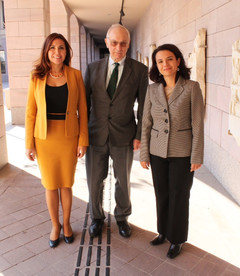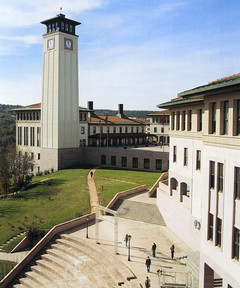On 13 November 2015, Koc University in Istanbul hosted a SUMMIT roundtable with Şuhnaz Yılmaz (in the picture left) and Bahar Rumelili (right), both Koc University, and Wolfgang Wessels (centre), University of Cologne, on the external action of the European Council. Before analyzing the main topic, the speakers discussed the general characterization of the European Council as the EU’s “key institution”. The European Council would take “history making decisions”, ranging from enlargement and economic governance to sectoral policies.
As regards the EU’s external action, the panelists elaborated on the two pillars of this policy field in order to explain the duality of European representation in various political environments: The intergovernmental pillar would consist of the Common Foreign and Security Policy, which they identified as a matter of “high politics”. In contrast, economic relations, being characterized as “low politics”, would constitute the supranational pillar.

The mentioned duality was illustrated with the example of economic sanctions which belong both to the field of foreign policy and of economic governance.
In the discussion the problem of different interests among Member States as regards actions of security and defense was underlined. This could be seen in the discussion about an intervention in Iraq War. Divergent security and defense interests would also be due to differing relations to NATO.



